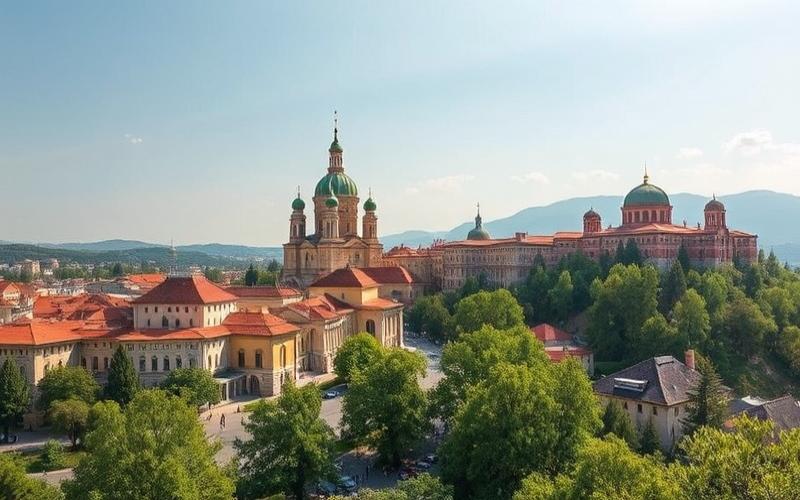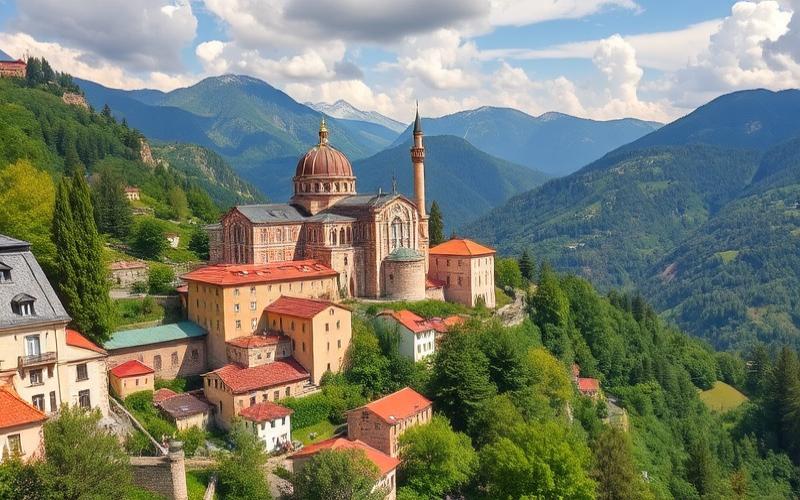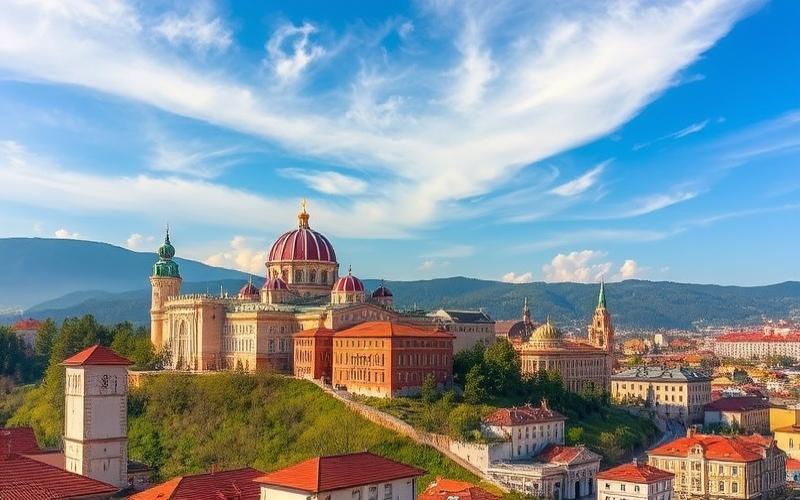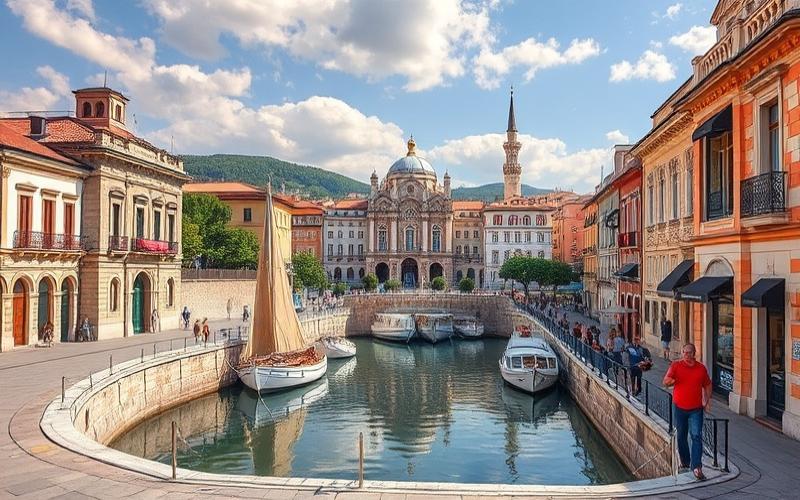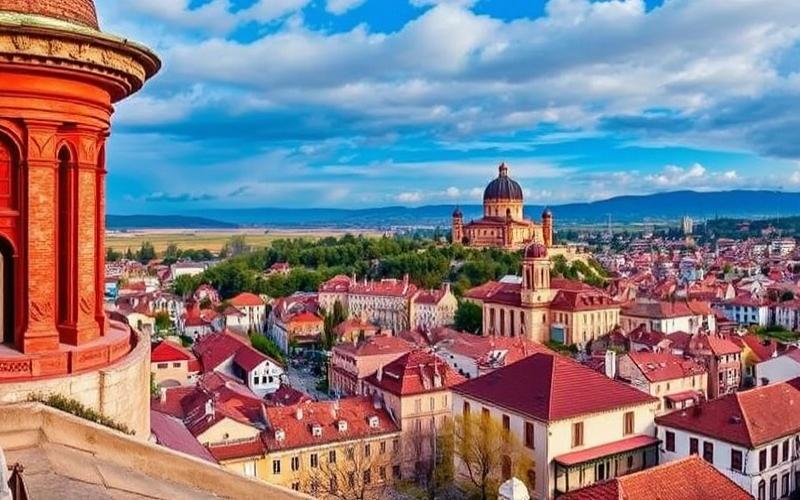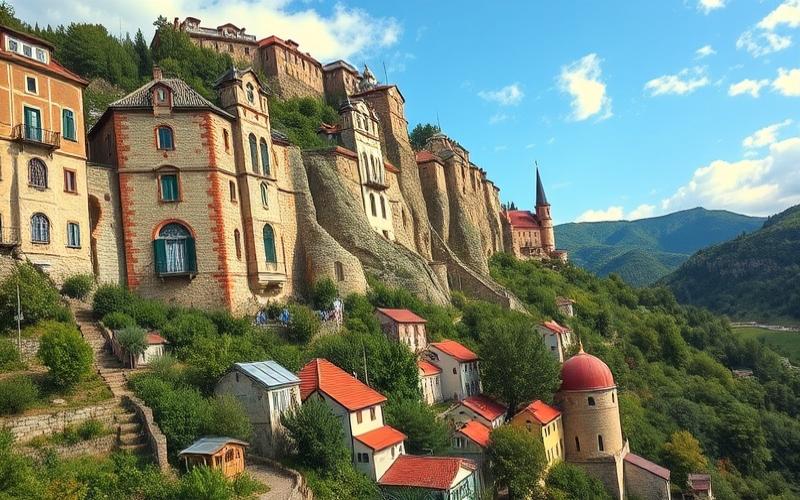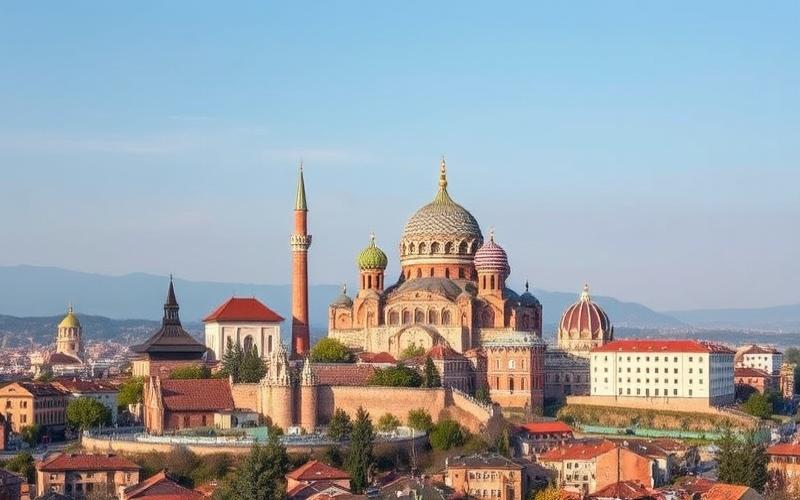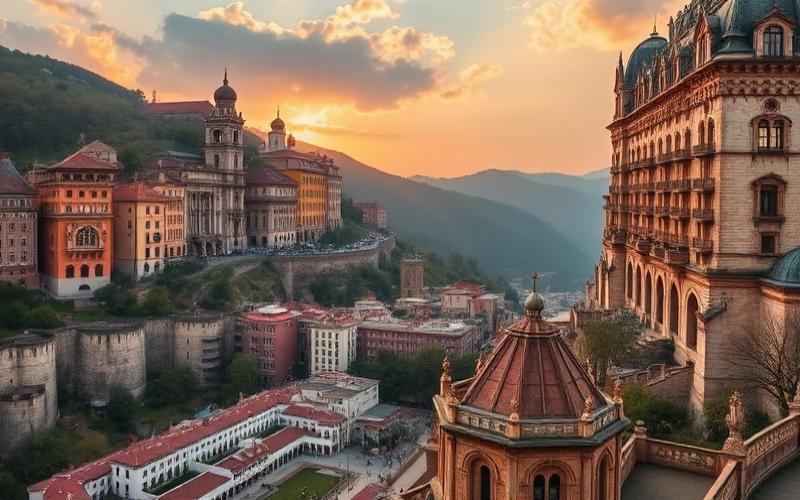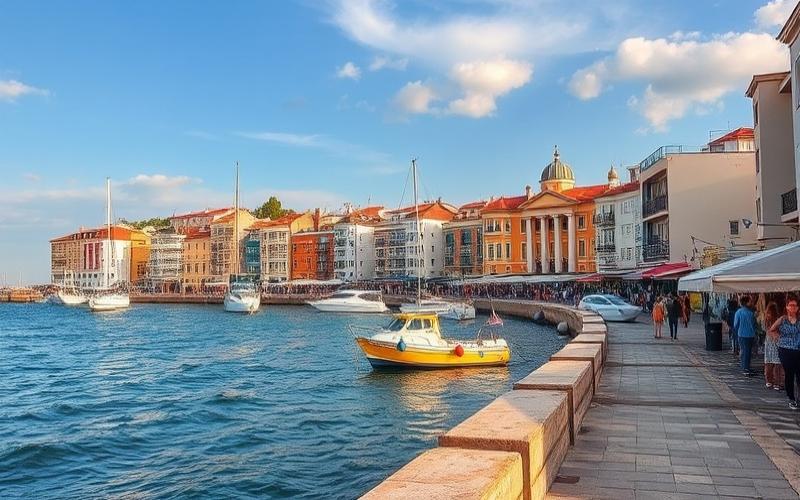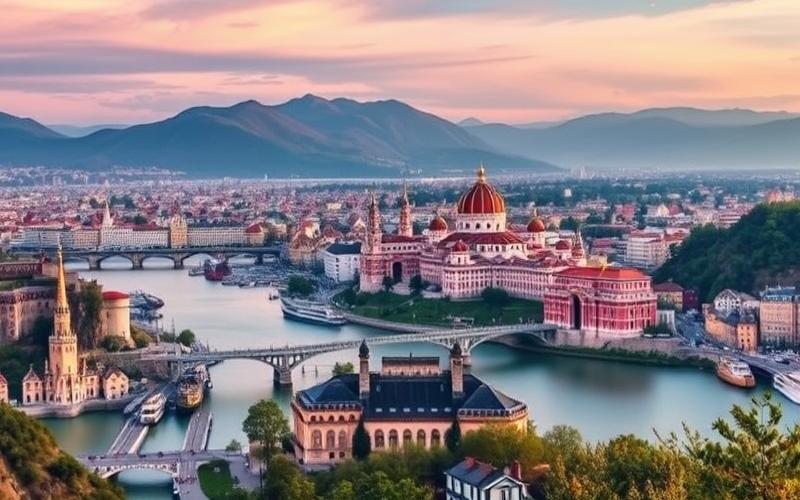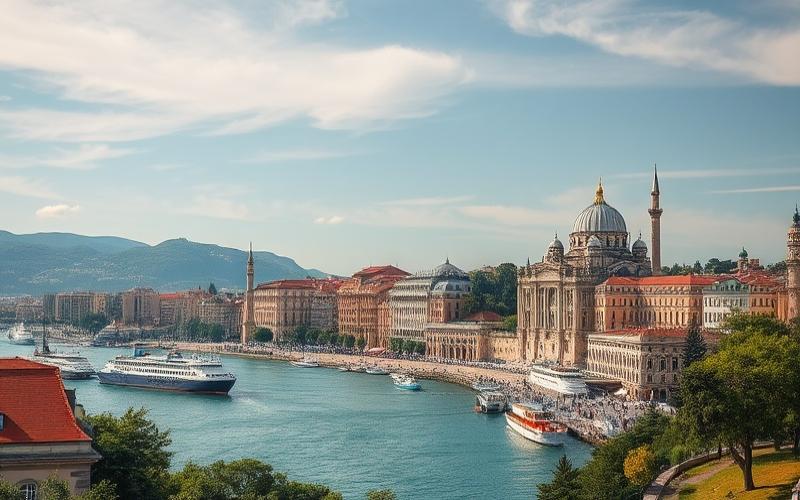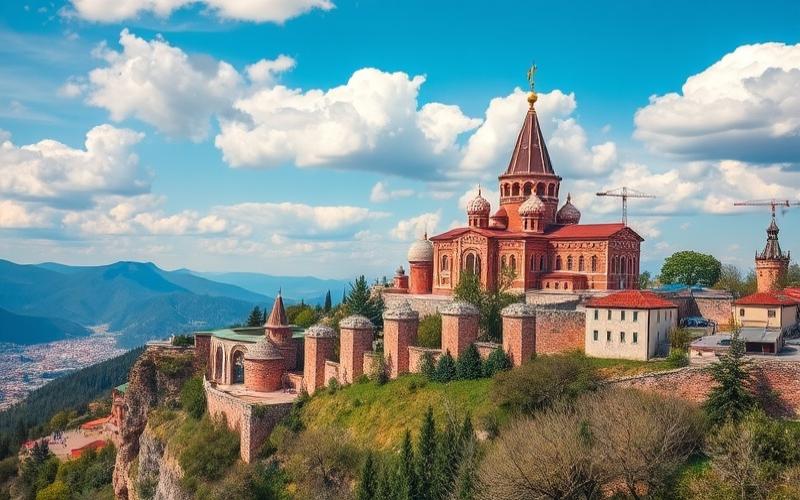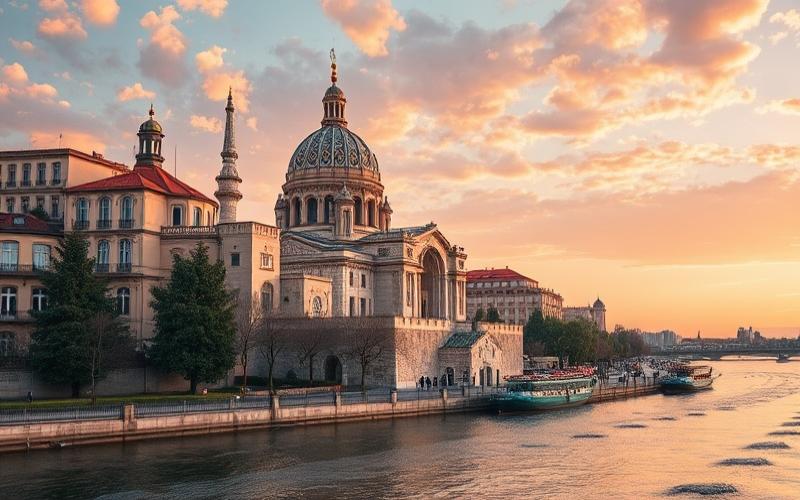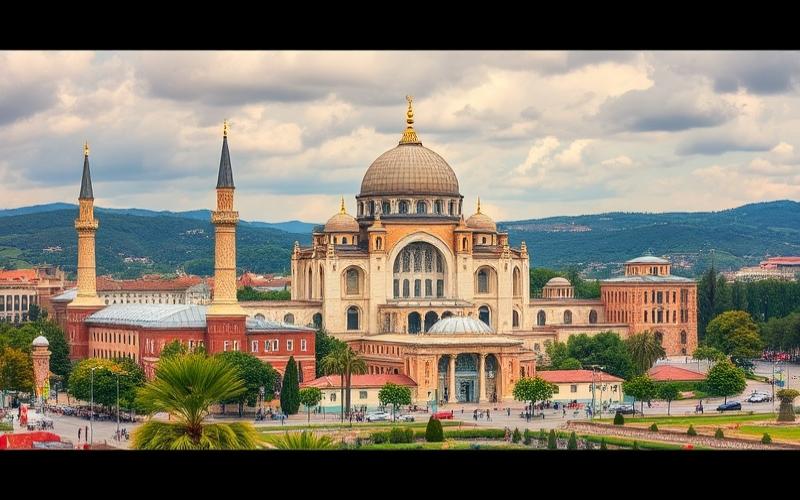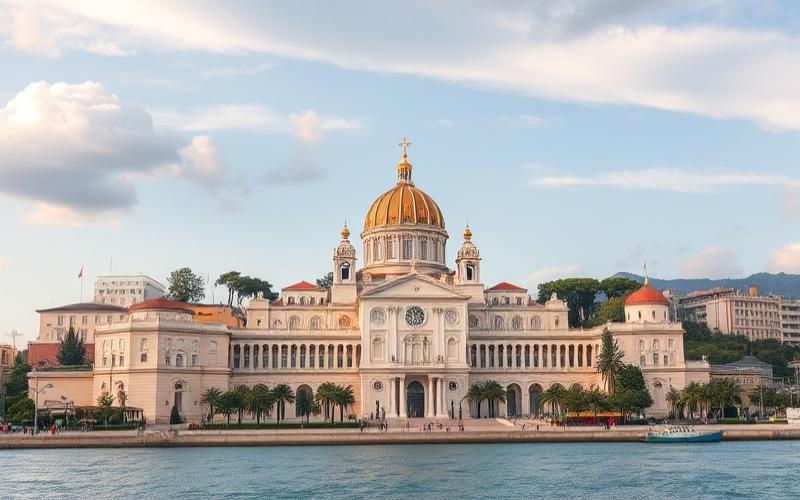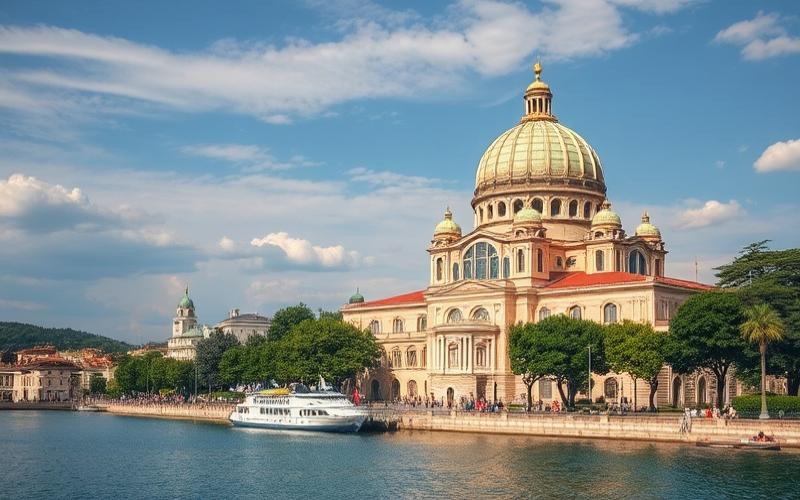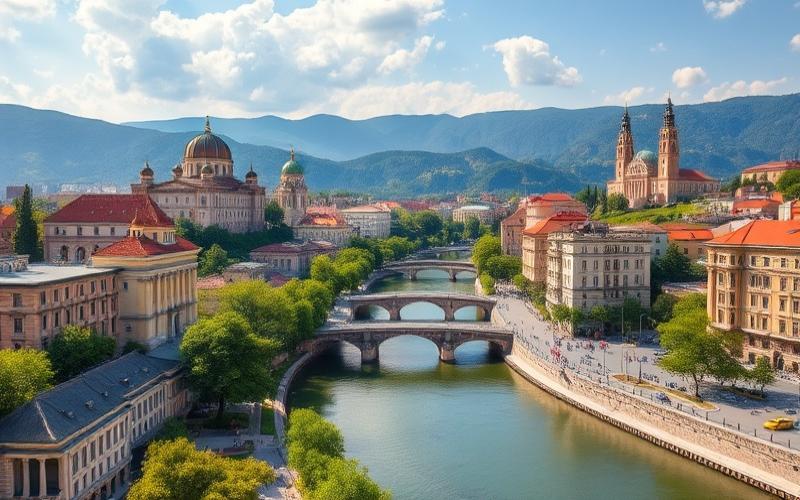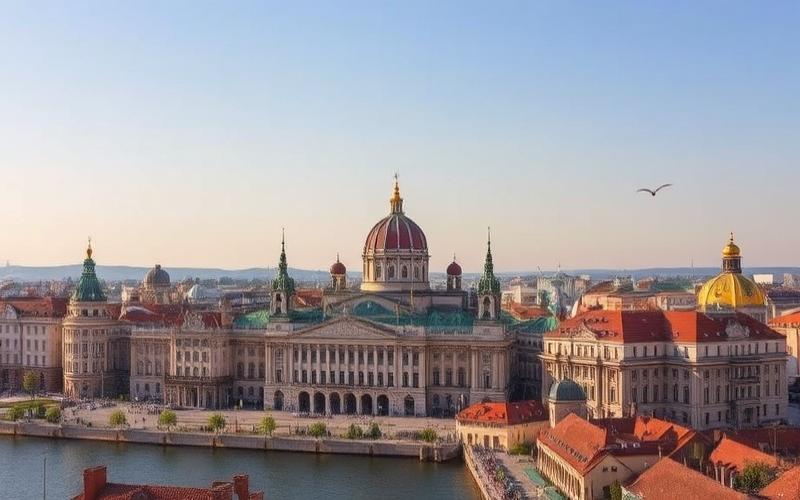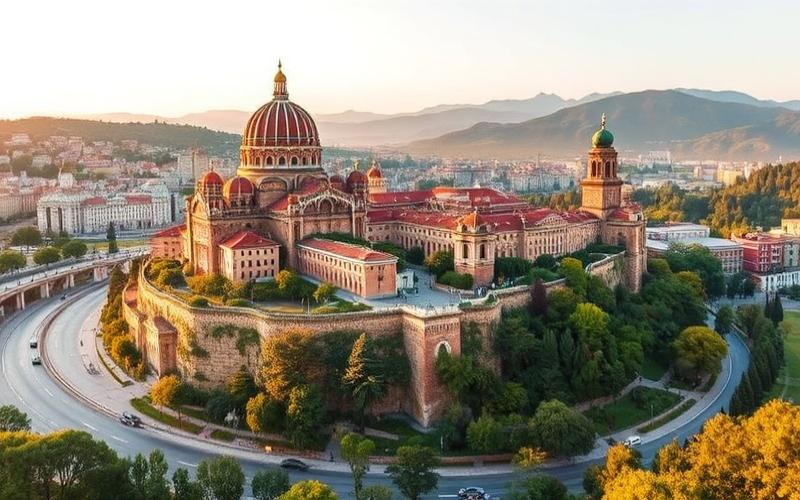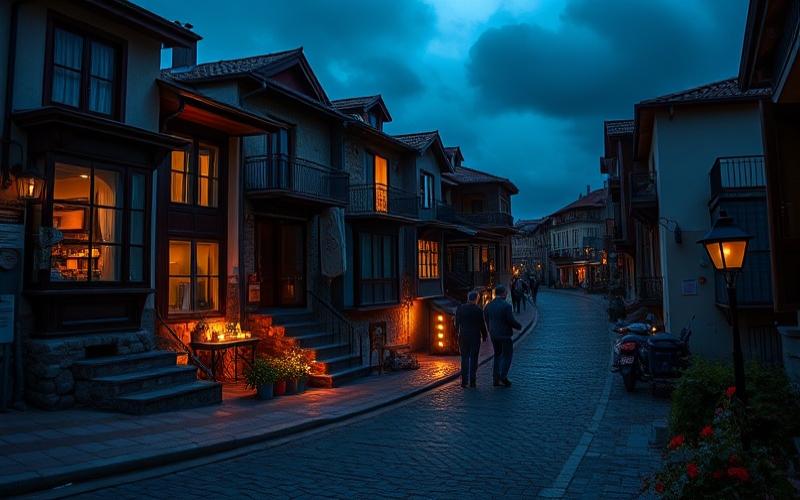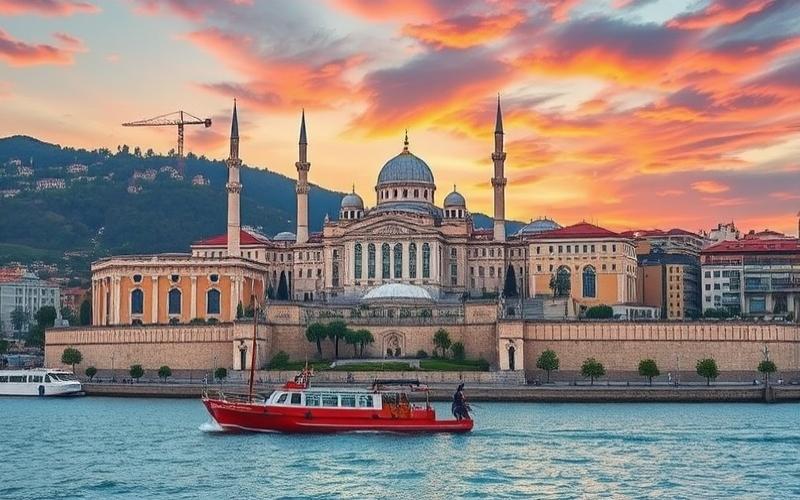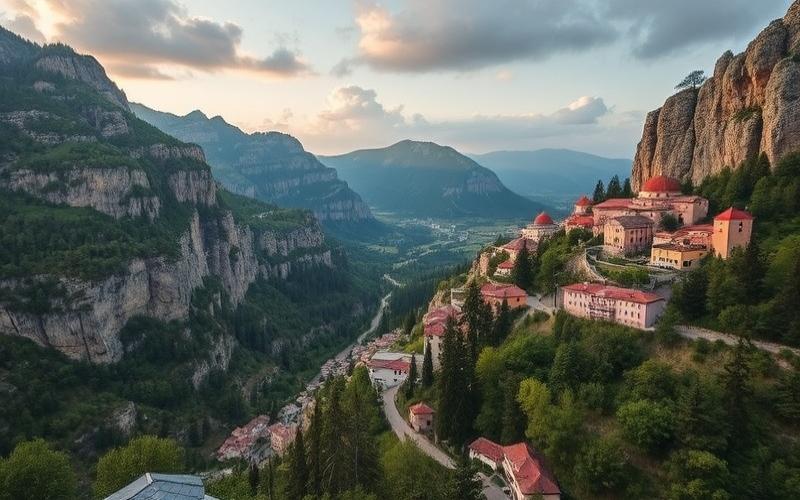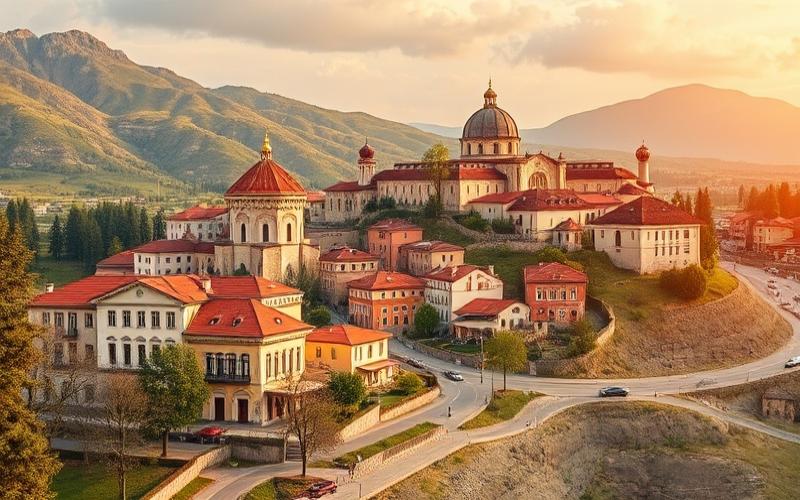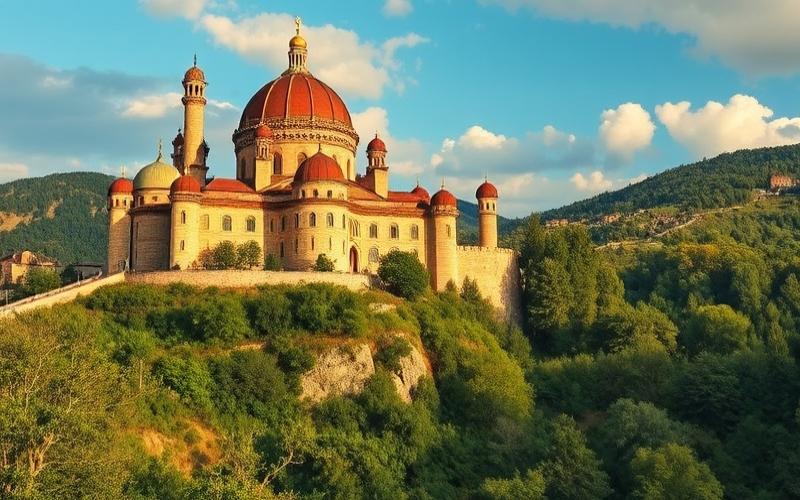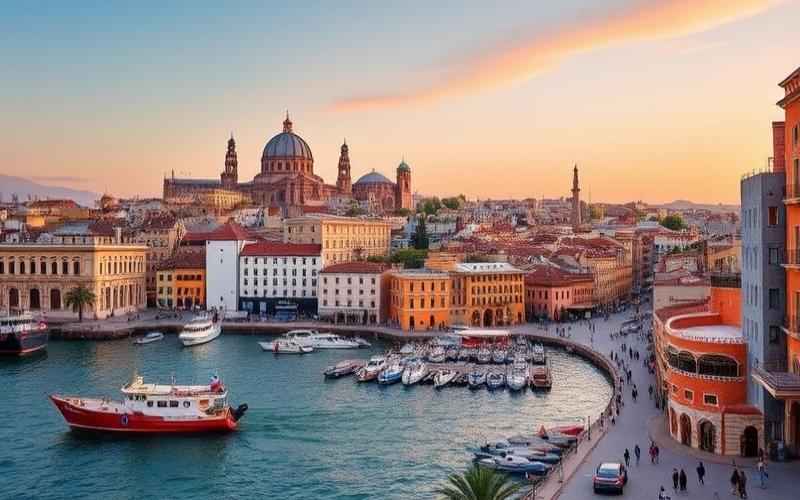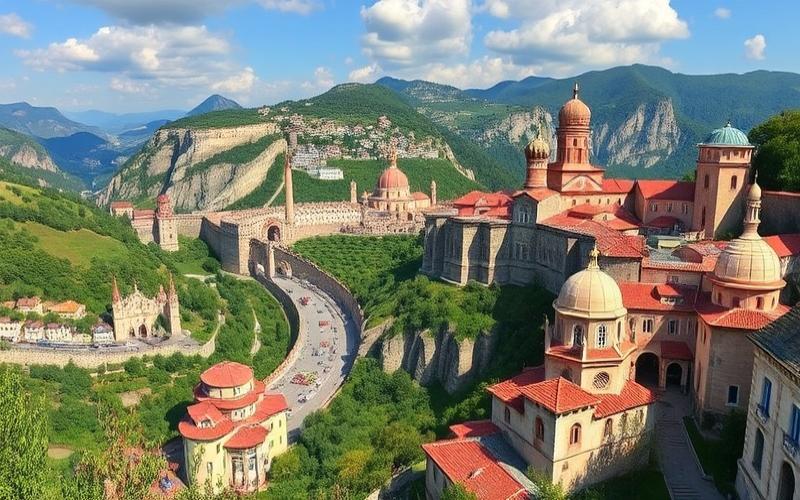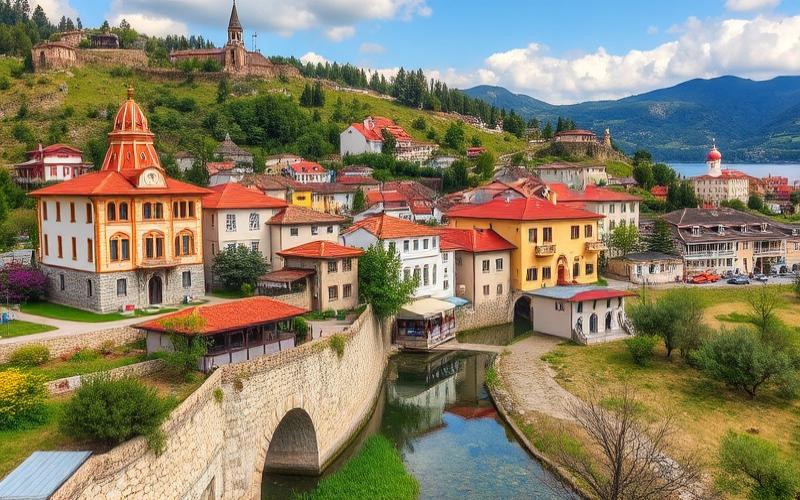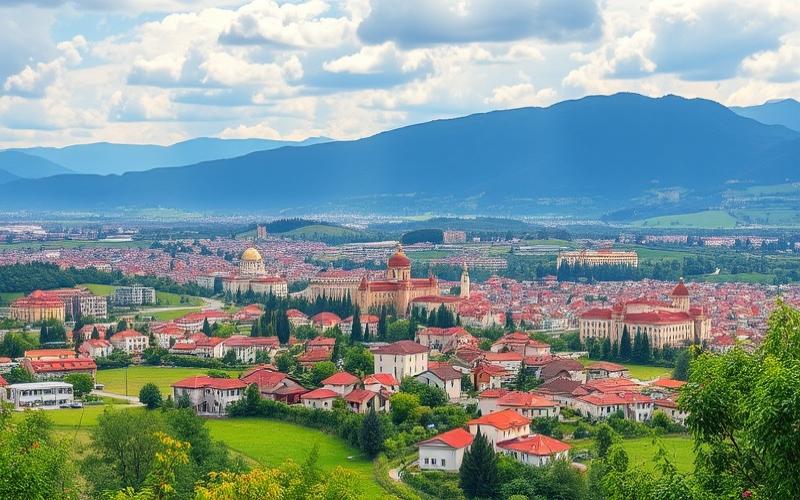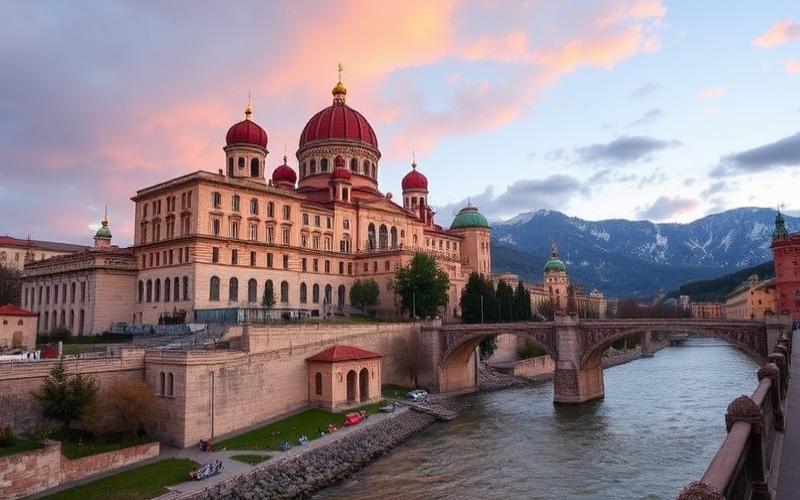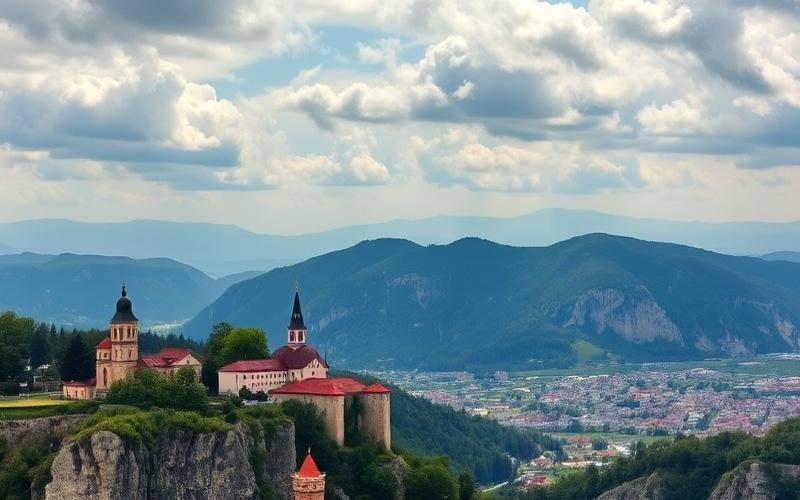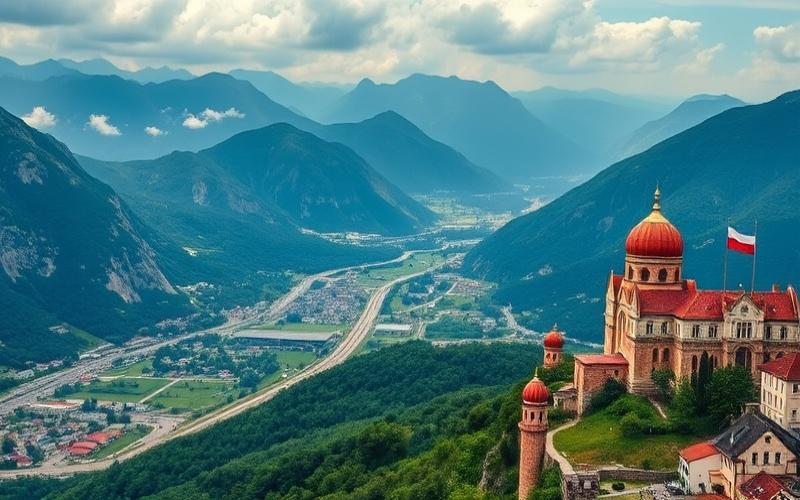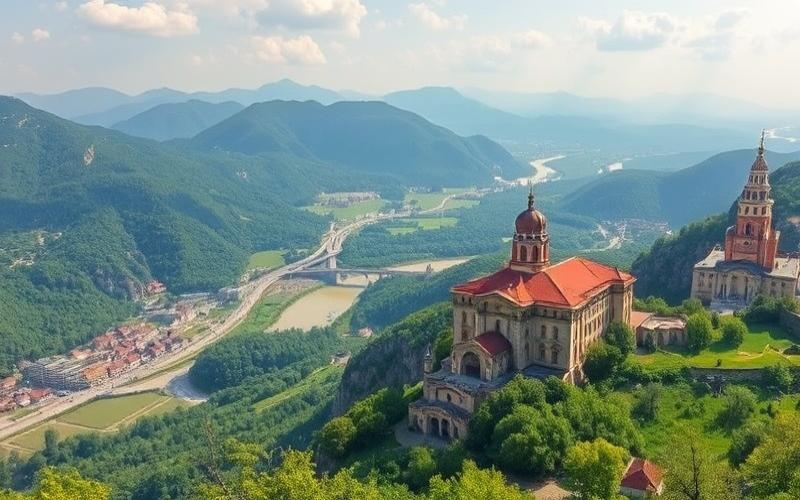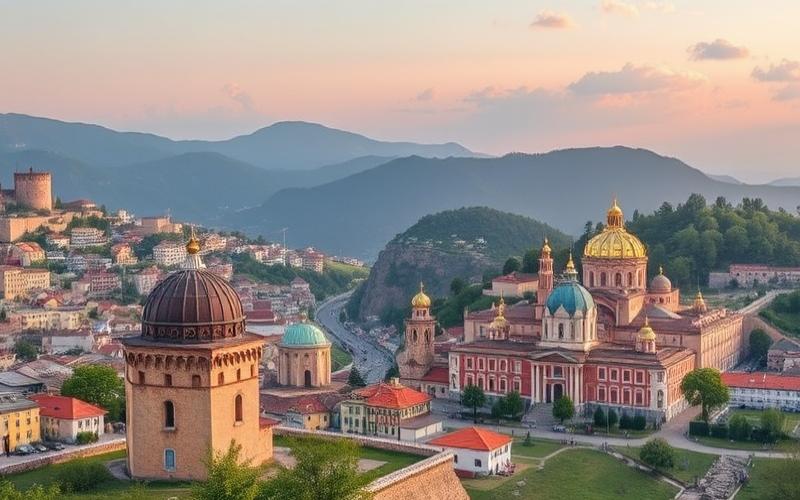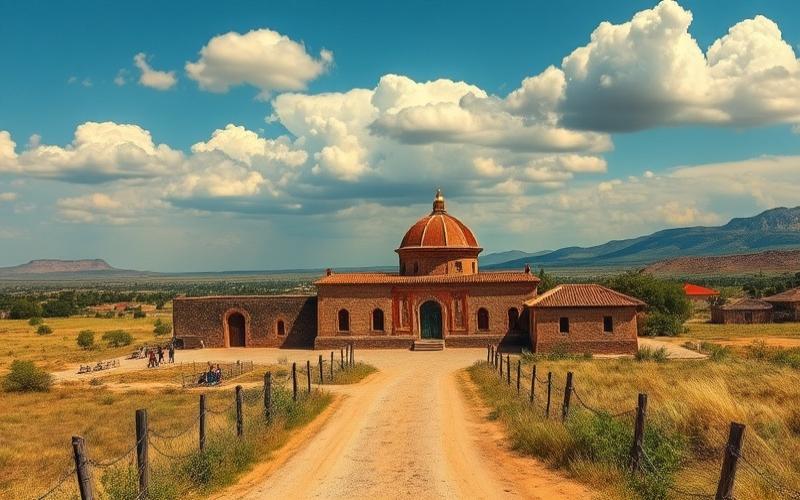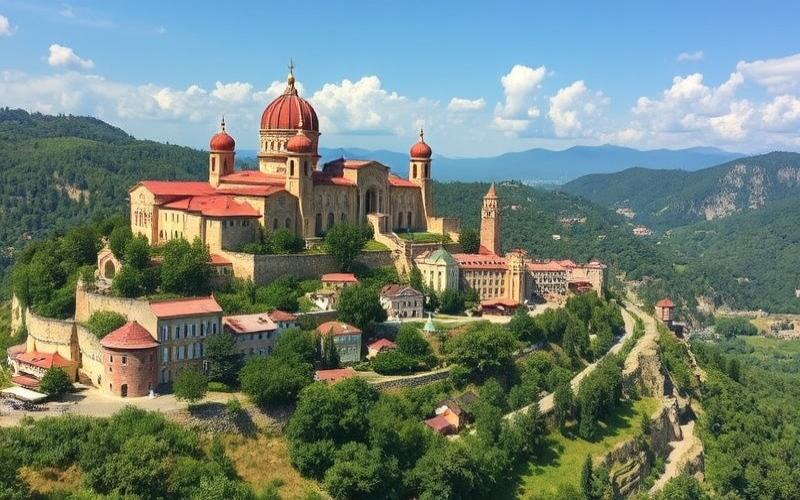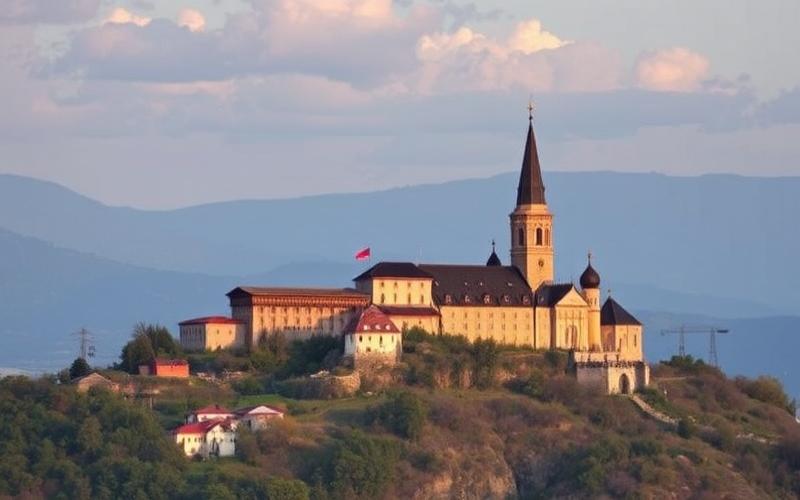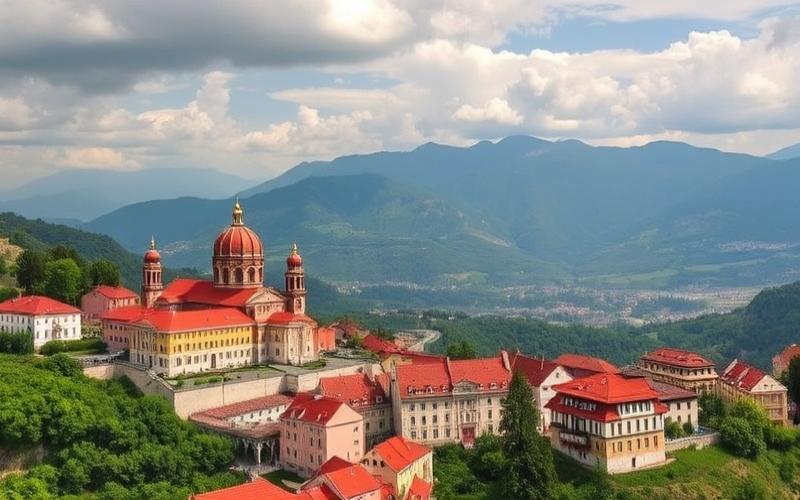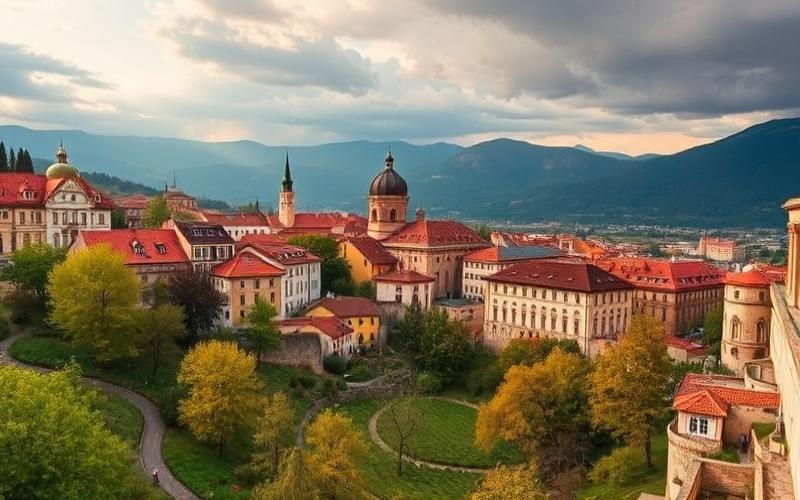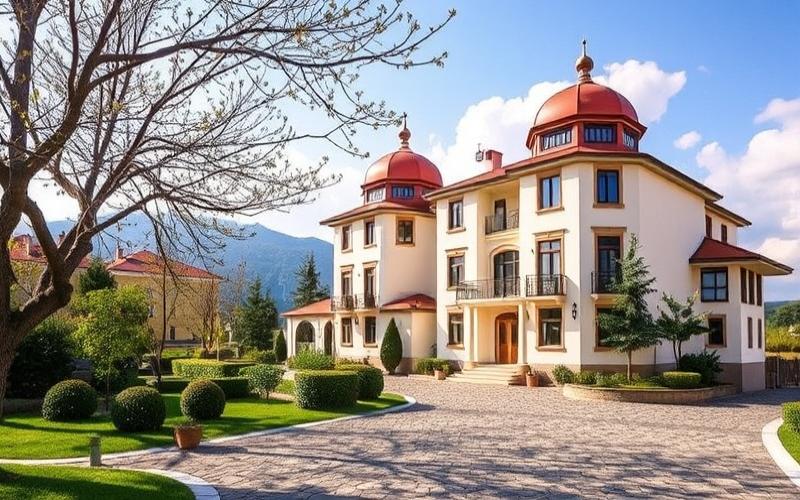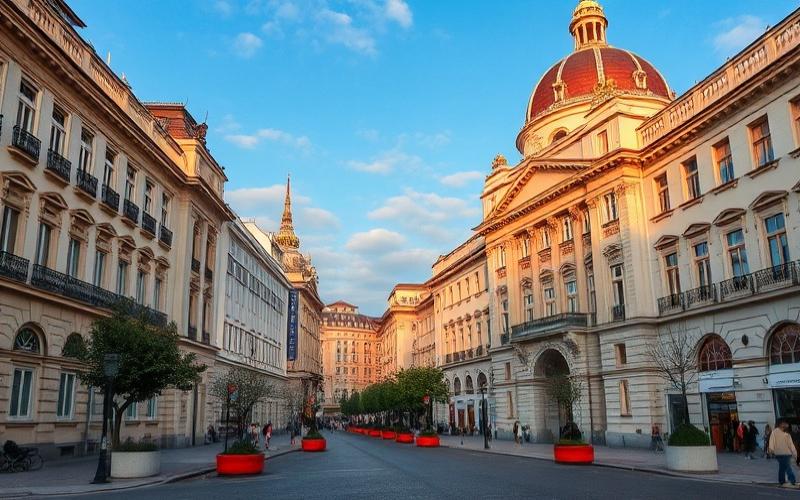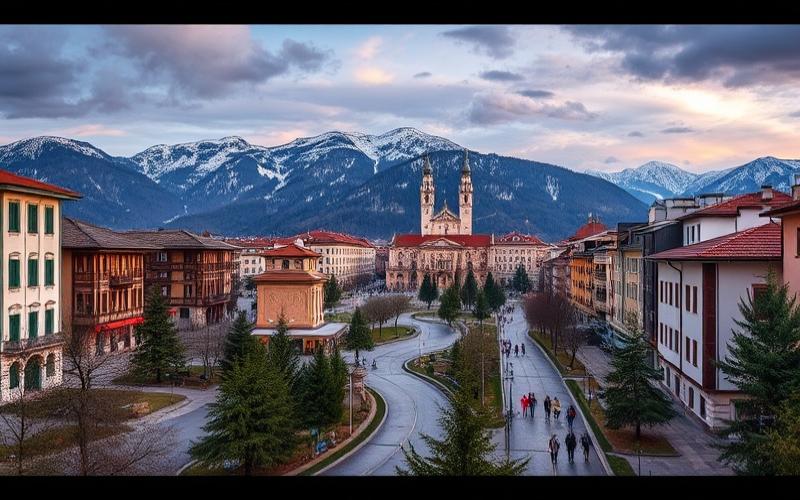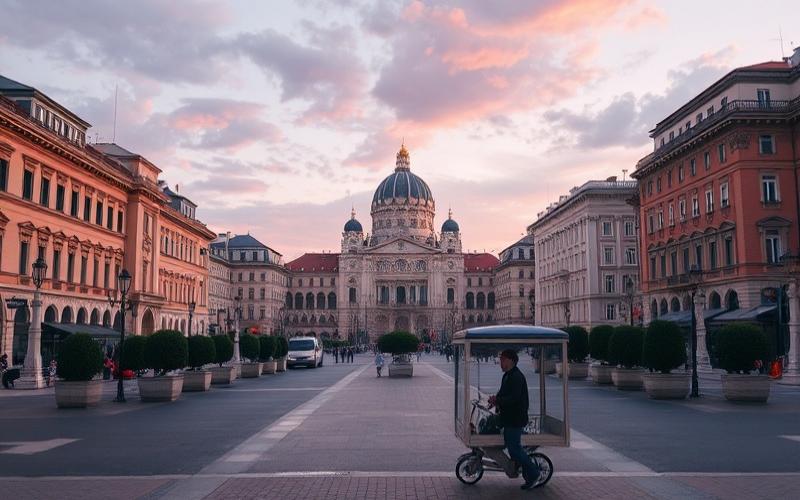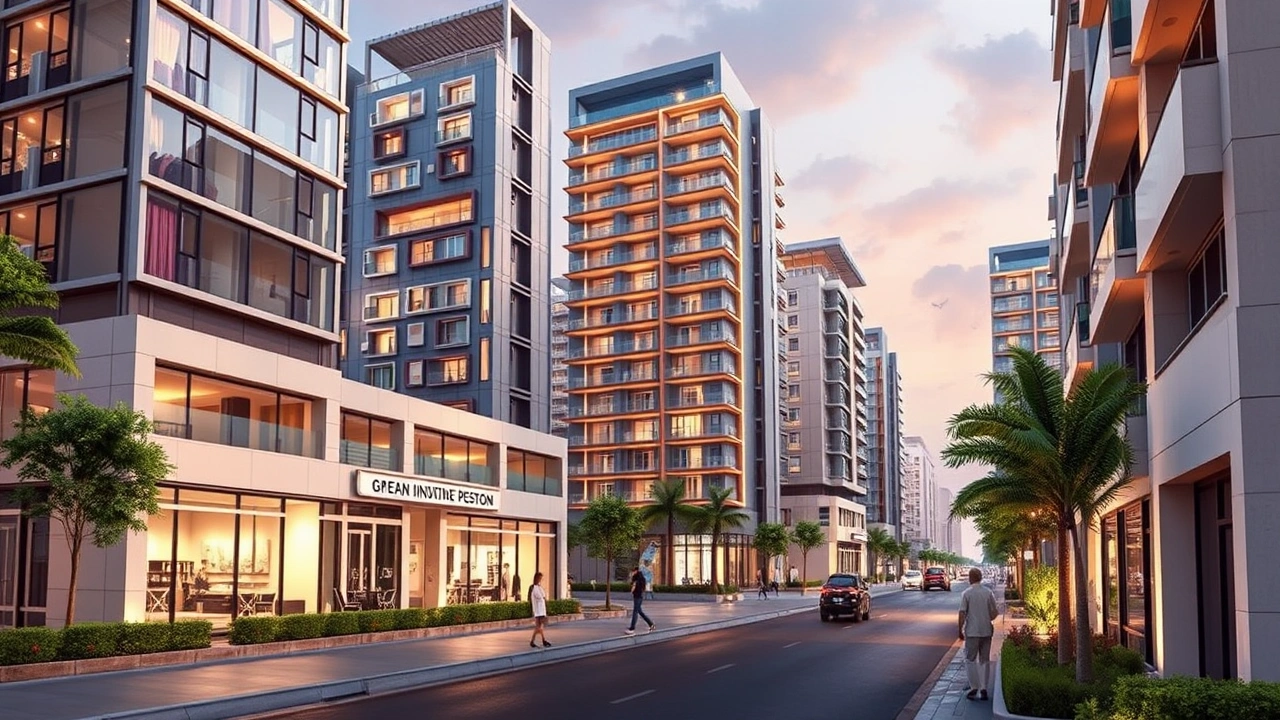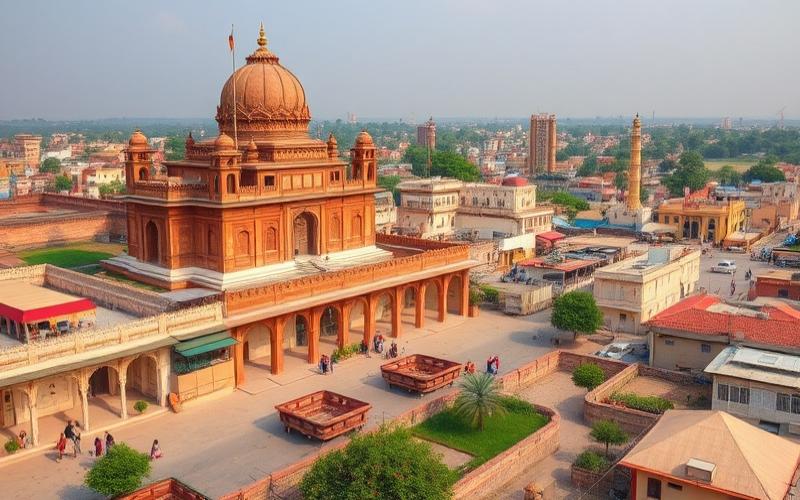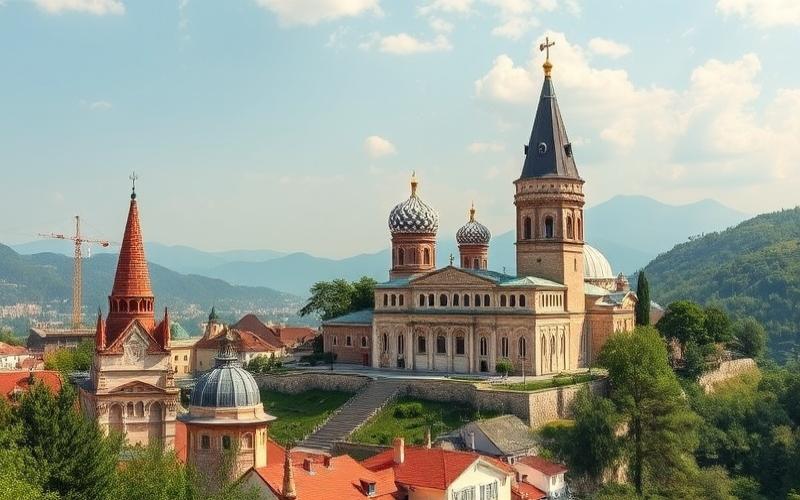
 Published on and written by Cyril Jarnias
Published on and written by Cyril Jarnias
Bulgaria’s real estate market has undergone a striking transformation following the COVID-19 pandemic, prompting buyers to reconsider their priorities and selection criteria. Accustomed to urban apartments, many Bulgarians now have an increased desire for more spacious areas, favoring suburban homes or rural properties for a wellness-oriented lifestyle. The demand for multifunctional housing that accommodates work-from-home activities has significantly increased, revealing a new trend toward adaptation and flexibility in the real estate market. While property values in major cities continue to evolve, Bulgaria stands out with unique opportunities hidden within its picturesque natural landscapes and less densely populated regions.
Pandemic Impact on Bulgaria’s Real Estate Market
Pandemic Impact on Bulgaria’s Real Estate Market
The COVID-19 pandemic has profoundly transformed Bulgaria’s real estate landscape, leading to significant changes in market trends. Contrary to initial expectations of a collapse, the sector has demonstrated remarkable resilience, with sustained price growth and evolving buyer preferences.In the second quarter of 2024, Bulgaria’s national property price index recorded an impressive 15.11% increase compared to the previous year. This rise, one of the largest since 2008, demonstrates the market’s strength despite pandemic-related challenges. New home prices saw a particularly notable increase of 15.6%, while existing property prices rose by 14.81%.
Evolution of Buyer Demand and Preferences
The health crisis has led to a noticeable shift in purchasing behavior. There’s growing interest in properties offering more space located in less densely populated areas. Buyers are now seeking homes suitable for remote work, with outdoor spaces and proximity to nature.Black Sea resorts and mountain regions have seen increased attractiveness, drawing both local and foreign buyers. Cities like Varna recorded a 6% transaction increase in the first quarter of 2020 compared to the same period in 2019, despite pandemic restrictions.
Real Estate Boom in Major Cities
Sofia, the capital, has experienced spectacular price growth, with a 70.68% increase between 2015 and the third quarter of 2021. This rise was particularly pronounced in the existing housing sector, where prices climbed 72.61% during this period. By 2024, older properties became scarce in Sofia’s city center, with new construction prices ranging between €3,000 and €4,500 per square meter.Impact of Government Policies
The Bulgarian government implemented various measures to support the real estate market during the pandemic. These initiatives helped maintain investor confidence and stimulate demand. Easier access to mortgages, with historically low interest rates averaging 2.68% in September 2021, played a crucial role in market dynamism.Long-term Outlook
Industry experts anticipate continued growth in Bulgaria’s real estate market, driven by several key factors:- The planned adoption of the euro in 2025, expected to attract more foreign investors and potentially lead to further price increases
- Steady wage growth, particularly in Sofia where the average salary reached €1,060, making homeownership more accessible for part of the population
- Growing interest from foreign buyers, with a 25% demand increase compared to the previous year
However, some challenges persist. Rapid price increases raise concerns about long-term housing affordability, particularly in major cities. Additionally, double-digit inflation and relative rental stagnation could affect rental investment profitability, transforming the market into one focused on appreciation rather than yield.
A Market in Transition
Bulgaria’s real estate market is undergoing a profound transformation period, marked by strong price growth and evolving buyer preferences. While major cities like Sofia continue to attract investors, there’s growing interest in properties offering better quality of life in less urban areas. The upcoming euro adoption and the country’s increasing attractiveness to foreign investors suggest a dynamic future for Bulgaria’s real estate sector, despite challenges related to affordability and long-term profitability.Good to Know:
Since the beginning of the COVID-19 pandemic, Bulgaria’s real estate market has experienced notable changes. Property prices initially saw a slight decline, followed by a gradual increase due to growing demand, particularly for housing located on the outskirts of major cities where access to green spaces is prioritized. Buyers increasingly opted for houses and land rather than apartments, reflecting a greater desire for personal space and social distancing. In urban areas, however, some neighborhoods saw stagnant or decreased demand, while others benefited from proximity to amenities and remote work opportunities. The Bulgarian government implemented market support policies, such as tax reductions and credit facilities, to cushion the economic impact of the crisis. According to experts, the trend toward properties in more rural areas may continue, but the gradual return to normalcy could also refocus interest on well-connected urban areas.
Evolution of Buyer Preferences in the Post-COVID Context
Evolution of Real Estate Buyer Preferences in Post-COVID Bulgaria
The impact of the COVID-19 pandemic has profoundly changed the expectations and behaviors of real estate buyers in Bulgaria. Several factors have influenced this evolution, including the desire for improved living environments, the growing importance placed on outdoor spaces, and adaptation to hybrid work models.Movement Toward Rural and Suburban Areas
A notable phenomenon is the movement toward rural and suburban areas. Many buyers, tired of dense urban life during the pandemic, now seek to move away from major cities like Sofia. This change is often motivated by a quest for tranquility and a healthier environment. Indeed, nearly 35% of recent real estate transactions show an increased trend toward these less populated areas.- Young professionals sometimes abandon city life to restore old houses in nearly abandoned villages.
- The search for superior quality of life becomes a determining factor in their residential choices.
Increased Need for Dedicated Remote Work Spaces
With the rise of remote work imposed by the pandemic, expectations regarding interior layout have also transformed. Buyers now actively seek:- Homes with separate spaces that can serve as offices.
- Larger total area to accommodate this new work model.
Statistics show that 70% of Bulgarian workers wish to continue working partially from home even after lockdowns end. This has led to increased demand for properties offering flexibility and functionality.
Growing Importance of Outdoor Spaces
Another significant aspect is the growing interest in properties with outdoor spaces such as gardens or terraces. After several months spent confined at home, many now seek to fully enjoy the outdoors:- Having a garden or terrace has become almost essential for many buyers.
- This provides not only additional space but also an area dedicated to relaxation or outdoor remote work.
It’s estimated that access to these spaces can increase a property’s perceived value by up to 9%, underscoring their importance in the current market.
Reevaluation of Traditional Lifestyles
The pandemic has also led to a general reevaluation of traditional lifestyles. Many have realized that their previous pace wasn’t necessarily suited to their current aspirations:- The desire for better work-life balance pushes some investors toward rental properties in these newly sought-after areas.
- This evolution not only fosters a return to roots but also encourages sustainable development through better connection with nature.
These trends reflect not only a temporary change but could durably influence Bulgaria’s real estate landscape in coming years as more buyers prioritize comfort, outdoor space, and rural accessibility in their property decisions.
Good to Know:
In the post-COVID context, real estate buyers in Bulgaria now favor properties outside urban centers, opting instead for rural or suburban areas offering better work-life balance and remote work compatibility. This trend is supported by a significant increase in demand for homes with dedicated remote work spaces, along with private gardens and terraces, showing a marked preference for quality of life. Recent research indicates that 40% of buyers now consider outdoor spaces essential. The pandemic has also prompted lifestyle reevaluation, making secondary residences more attractive, thereby meeting the need for multifunctional and versatile spaces for daily use.
Remote Work and New Demand for Residential Spaces in Bulgaria
Remote Work Boom Reshapes Bulgaria’s Real Estate Landscape
The COVID-19 pandemic has profoundly transformed work habits in Bulgaria, leading to a significant increase in remote work. This evolution has considerably impacted the real estate market, changing buyer search criteria and influencing demand for certain property types.Bulgarian buyers’ new criteria now reflect specific needs related to remote work. The presence of a dedicated home office space has become paramount, as has the possibility of easily setting up a work area. Homes offering extra rooms or flexible spaces are particularly sought after.
Growing Importance of Outdoor Spaces
Demand for properties with balconies, terraces, or gardens has significantly increased. Buyers seek outdoor spaces allowing for fresh air and relaxation between work sessions. This trend has led to price increases for properties with such features, particularly in major cities like Sofia.Renewed Interest in Suburban and Rural Areas
Remote work has freed many Bulgarians from proximity constraints to their workplaces. Consequently, renewed interest is observed in suburban areas and small towns, offering better living environments at more affordable prices. Locations like Plovdiv or Varna have seen increased attractiveness, benefiting from an influx of new residents seeking space and quality of life.Recent data shows significant price increases in these areas, with an average 17% rise in Plovdiv compared to the previous year. This trend reflects growing appeal for regions offering a good compromise between pleasant living environments and connection to major cities.
Real Estate Market Adaptation to New Requirements
Bulgarian developers and real estate agents have quickly adapted their offerings to meet these new expectations. More projects incorporating coworking spaces within residential buildings are appearing, allowing remote workers to benefit from professional environments without leaving their buildings.A Sofia real estate agent testifies: “We’ve completely revised our approach. Today, during viewings, we highlight possibilities for setting up office spaces and internet connection quality. These have become determining criteria for many buyers.”
Impact on the Rental Market
The rental market isn’t left behind, with increased demand for remote work-friendly housing. Landlords offering apartments or houses equipped for remote work (dedicated office, high-speed internet) benefit from a definite competitive advantage.A Varna property owner shares their experience: “I set up a small office in my rental apartment and installed fiber internet. Since then, I have no trouble finding tenants, and I can even charge slightly higher rent.”
Challenges to Address
Despite these positive developments, Bulgaria’s real estate market faces certain challenges. Rapid price increases in newly popular areas raise concerns about housing affordability for local populations. Additionally, digital infrastructure in some rural regions requires improvements to fully meet remote workers’ needs.Remote work has undeniably transformed Bulgaria’s real estate landscape, creating new opportunities and redefining buyer and tenant selection criteria. This trend appears set to continue, durably shaping the country’s housing market.
Good to Know:
The rise of post-COVID remote work has notably influenced demand for residential spaces in Bulgaria, with growing preference for homes featuring home offices and outdoor spaces like gardens or terraces. Buyers now seek properties offering layout flexibility to accommodate comfortable workspaces. This trend has fueled interest in suburbs and less dense regions, such as areas around Sofia and Plovdiv, where prices are reasonable and environments calmer. According to recent data, Bulgaria’s real estate market has seen a 15% transaction increase in these rural and suburban areas. Real estate professionals also note that families and independent workers show particular enthusiasm for nature-adjacent residences, seeking balance between professional and personal life.
Disclaimer: The information provided on this website is for informational purposes only and does not constitute financial, legal, or professional advice. We encourage you to consult qualified experts before making any investment, real estate, or expatriation decisions. Although we strive to maintain up-to-date and accurate information, we do not guarantee the completeness, accuracy, or timeliness of the proposed content. As investment and expatriation involve risks, we disclaim any liability for potential losses or damages arising from the use of this site. Your use of this site confirms your acceptance of these terms and your understanding of the associated risks.

